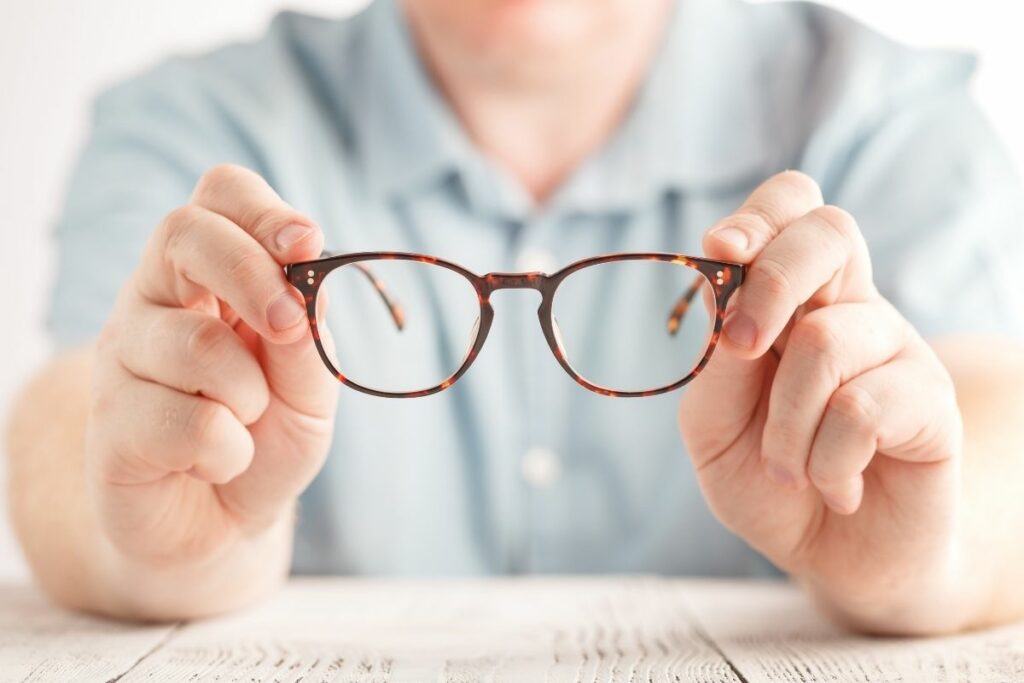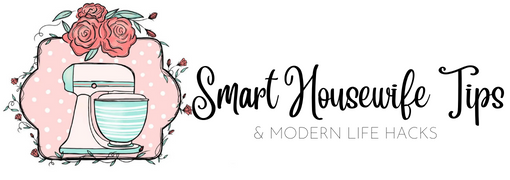Wearers of glasses are not only at a slight handicap because of their bad eyesight, but also because they need to take constant care of their glasses. However, you can easily damage your glasses if you’re not careful enough. Most people damage their glasses by sitting on them, but you can actually damage them a lot if you’re not careful when you’re cleaning them. So, how to polish your glasses?
It’s best to use a microfiber cloth with a cleaning solution to polish your glasses. Microfiber is the safest and the most effective tool when it comes to fighting this particular battle, as it can’t smear or scratch your glasses. You should also use a spray that’s safe for polycarbonate lens coatings.

In today’s article, we’ll be taking a look at some of the tips you need to incorporate in your glasses cleaning routine to ensure that you maximize your visibility, alongside with keeping them safe
Let’s get started!
How to Polish Your Glasses Without Damaging the Surface?
As we said, the best way to clean your glasses is by using a microfiber cloth with a quality cleaning solution.
Firstly, make sure to always wash your hands before you start polishing your glasses as you don’t want to spread germs to the glasses. Run your glasses under a stream of warm water – this will get rid of dust and other things that may damage the lenses. Distilled water is a good option is the water in your area isn’t good.
Use the spraying solution to cover your glasses from both sides. However, if you’re using dish soap, only use a single drop on both sides of the lenses – rub it over the lens surface gently.
Shake your glasses to get rid of excess water droplets, and you can also use canned air to dry them.
When you’re taking care of the frame, you have to take special care of all those tiny parts such as screws, springs, and hinges. Those are the spots where sweat and oils from your face can get lodged in. Many people tend to skip this step, but it’s just as important as cleaning the lenses.
It’s crucial because of personal hygiene.
Run the frames under a stream of warm water and use mild soap for cleaning the frames. Apply it using your fingertips.
Rinse them under another stream of warm water and use a moist towelette with rubbing alcohol for the nose pads and earpieces of the frame.
There are many materials that can damage your glasses, so you should definitely avoid them: paper towels, tissues, and shirt fabric. These are some of the handiest solutions people find when they’re in a rush, but they’re actually bad for your glasses as they’re not soft cloths and they can cause micro-scratches on your lens.
Acetone products are also dangerous, such as nail polish remover. Acetone is destructive to both lenses and some glass frames if it’s left on the surface for too long.
Saliva is no good either. Some people, when no other solution is at hand, spit and try to clean the lenses with their saliva, but this is only going to smudge the lenses. You’re also covering your lens with germs from your mouth, which can then multiply.
There may also come a time when you need to have your glasses professionally cleaned. Optometrists, ophthalmologists and eyeglass retailers all offer the service of professional cleaning. There are also retailers who offer complimentary cleaning. If you’ve tried your best to get rid of the oily buildup around the ears or nose, and you just can’t get it clean – taking them to a professional is the definite answer.
If you’ve noticed repeated breakouts of that buildup on those areas, then you’re not effectively stopping the spread and multiplication of germs and you should definitely take your glasses to a professional.
If you’re taking an annual eye exam, you can ask for a cleaning every time you get your glasses adjusted.
Storing your glasses has a lot of effect on their state. You need to keep them well protected if you want them to stay safe without a scratch or a smudge. Keeping them in your travel bag or on your nightstand without any protection is definitely going to result in scratching and/or smudging.
Purchasing a hardshell case is the best way to go, and these cases can be purchased at most drugstores as well as the optical retailer where you got your glasses.
If you forgot your case, however, you can store your glasses in a soft case. However, make sure that you secure your glasses in a tight pocket of your suitcase or handbag, as you don’t want them being thrown around your bag.
Always keep them in a case at night.
There are also ways to clean your glasses even if you do not have industrial lens cleaner at hand. Ophthalmologists don’t recommend these methods for everyday use, but if you need a quick solution and can’t find anything to clean your glasses with, here are a few things that you can try.
To remove scratches from your glasses, first, clean them with a microfiber cloth to get rid of dust and debris. Following that, mix a solution of baking soda and water. You’ll want to use two teaspoons of baking soda with just enough water to make it into a thick paste – don’t make it too thin of a paste.
Use a microfiber cloth to spread that paste over the damaged area of the lens and rub it in gently with circular motions. When you’re done, rinse the water to get rid of any residue and give them a quick, dry clean with a microfiber cloth. We do need to stress that you shouldn’t do this often, but if you’re stuck somewhere without a lens-cleaning solution and you have nothing else at hand – this method is surely going to get the job done.
Lens Cleaning Products
Here’s a good example of a lens cleaning product that you’ll want to use.
These wipes use a streak-free formula that cleans and dries quickly without leaving behind streaks or residue. You can easily clean your glasses, phone screen, tablet screen, and even your camera lens.
They’re suitable for all glass surfaces and safe for coated lenses, making them ideal for most applications. The wipes are big enough for large screens and made of a soft, lightweight material that’s gentle but effective. These wipes are small and individually wrapped making it easy to carry a few in your bag so you can easily use your lenses or devices on the go. This makes them the perfect cleaning wipes for glasses and smartphone screens. The larger wipes are also made to clean larger screens and surfaces.
In this packaging, you’ll find 210 cleansing wipes that are 100% safe on coated lenses. They are made with fine fibers that won’t scratch your lenses.
These pads are different from alcohol pads because alcohol prep pads typically use 70% Isopropyl alcohol and 30% water and this level of concentration is not safe to use on coated and special lenses. Our lens wipes have a 39.5% Isopropyl alcohol saturation which is milder and safer to use on lenses. They’re perfect for cleaning oils and smudges as they dry up quickly and leave your lenses streak-free.
You can also check this spray out if you’re interested in a liquid solution. This lens cleaner can also be used to clean off dirt, dust, or anything else that might have gotten your lens dirty. It can also be used on iPhones, laptops, TV, car screens, mirrors, CDs, DVDs, and more.
You can also purchase a microfiber cloth that goes ideally with this liquid to make that perfect cleaning combination. The textured design catches and easily removes dirt, debris, grease, oil from your glasses, screens, or monitors and is machine washable.
The non-static solution of this liquid ensures that there’s no static formation on the lens surface. And since the bottle is just 8 oz, it’s perfect for traveling.
It’s always preferable to use a lens-clearing spray than other, homemade solutions, as these solutions have been chemically perfected to clean your lenses without damaging them. People tend to make faster and less thought-through decisions in a hurry, but it’s important to know that buying a lens cleaning solution is always the best way to go. You can also find these solutions at your local drug store, so you don’t have to order them online if you don’t want to.
Literature:
https://www.themanual.com/fashion/how-to-remove-scratches-from-glasses/
